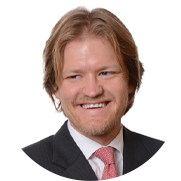Professor |
||
Dates |
6-10 September 2021 |
|
Hours |
15:30 to 18:30 CEST |
|
Format |
Online |
Intended for
Theoretical and empirical researchers with an interest in emerging issues in antitrust and competition economics
Prerequisites
First-year Master or PhD level in econometrics and microeconomics. Introductory graduate level industrial organization is recommended. Tirole’s “The Theory of Industrial Organization” textbook is a good reference.
Overview
The course is divided in five topics, each of them covered in one lecture. In each topic, we will survey the relevant theory, critically examine the existing empirical literature, and discuss theoretical and empirical research challenges going forward.
Topics
Markups and the Rise of Market Power
Innovation and Antitrust
Common Ownership
Monopsony and Labor Market Power
The Antitrust Challenges of Big Tech

Florian Ederer is an Associate Professor of Economics at the Yale School of Management and a Research Staff Member at the Cowles Foundation for Research in Economics. Professor Ederer’s research which has been widely published in leading journals, is in the areas of organizational economics, innovation, and behavioral economics. It focuses on the incentive design in organizations, how it shapes innovation and how it is in turn affected by social interactions and more realistic assumptions about the motives of principals and agents. Some of his recent work explores the impact of common ownership on managerial compensation and the existence and pervasiveness of “killer acquisitions” that prevent startups from challenging dominant market incumbents. In his academic work he draws on a broad set of tools often combining theoretical models, experimental methods, and empirical analysis. Prior to joining the Yale School of Management Professor Ederer was a faculty member of the UCLA Anderson School of Management. He earned his doctorate in economics at the Massachusetts Institute for Technology and his master’s and undergraduate degrees from the University of Oxford.